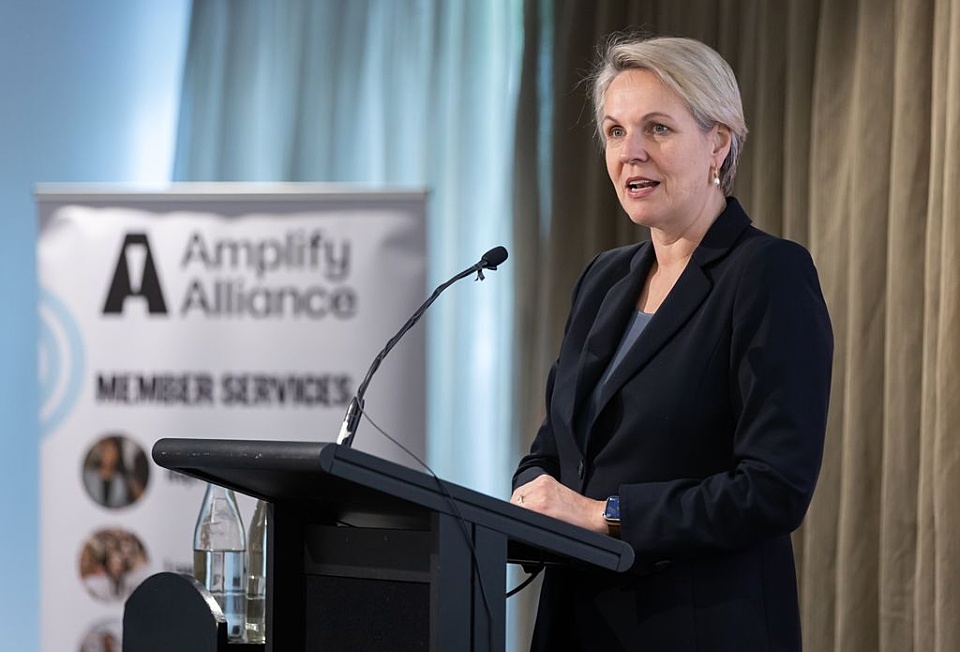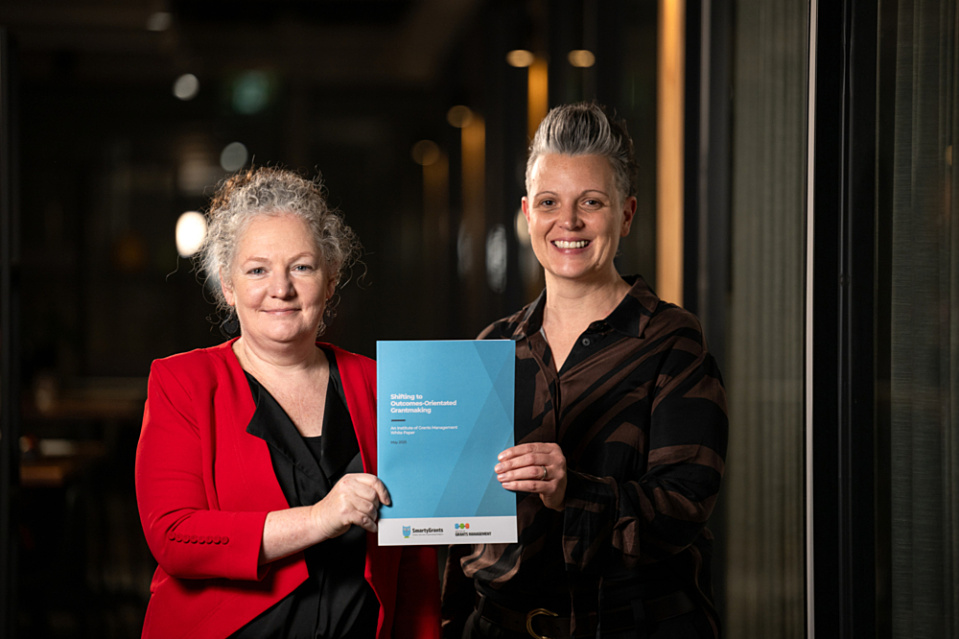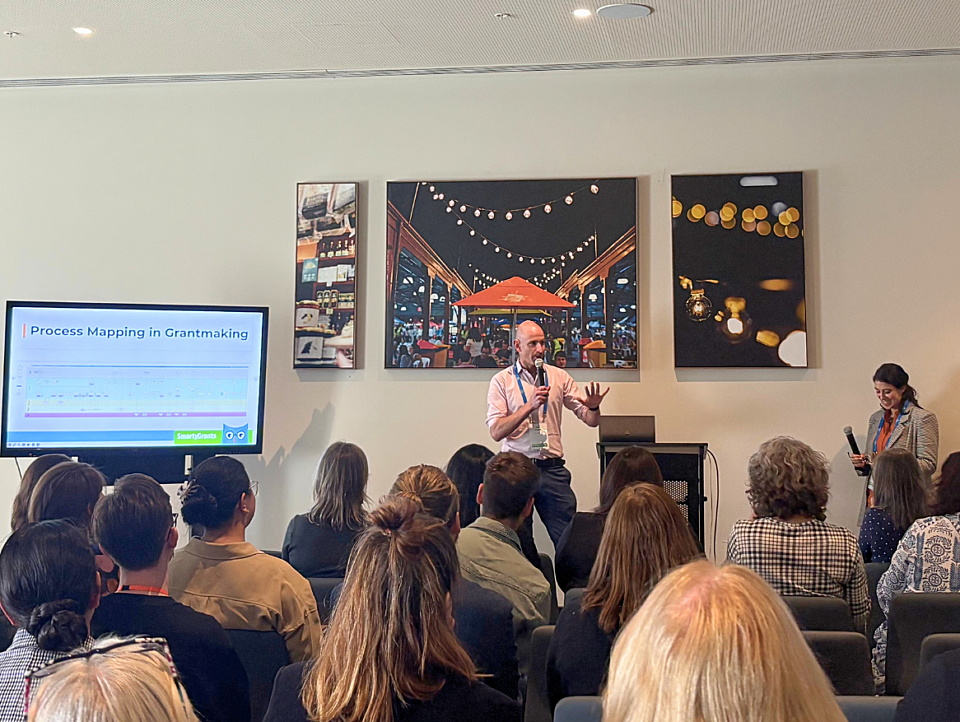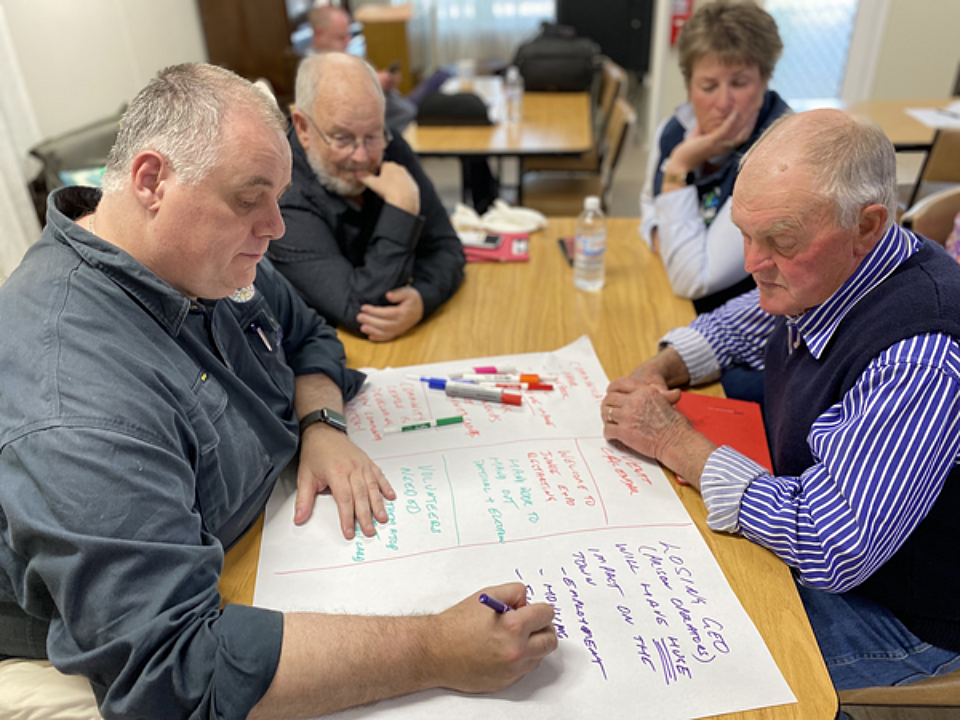
Feds flag human services grants shakeup
Posted on 15 Dec 2025
The federal government is trialling longer-term contracts for not-for-profits that deliver…
Posted on 04 Jun 2025
By Matthew Schulz, journalist, SmartyGrants

Australia’s leading grantmaking research, policy and training provider has released a white paper urging funders to focus less on how much money is distributed and more on the impact those dollars create.
Launched by federal minister Dr Andrew Leigh at the national 2025 Grant Impact Forum before an audience of more than 80 leading grantmakers and funders, Shifting to Outcomes-Orientated Grantmaking is published by the SmartyGrants-affiliated Institute of Grants Management (IGM). The paper outlines a practical framework for measuring outcomes.

The paper's release coincided with Glocal Evaluation Week, a global celebration of evaluation and evidence hosted by the Global Evaluation Initiative (GEI), which is affiliated with the World Bank.
The 38-page paper was written by Our Community executive director Kathy Richardson and chief impact officer Jen Riley.
Richardson said the white paper challenges grantmakers to answer one deceptively simple question: “What changed as a result of your funding?”
“For too long funding programs have prioritised efficiency over effectiveness – tracking how much was distributed and how quickly, but not whether anything improved for the people or communities the funds were intended to support.
“Grantmakers have spent years improving efficiency. Now we need to match that effort with effectiveness.”
Richardson said the shift proposed in the paper was not about more bureaucracy.
“This shift isn’t about more red tape – it’s about better learning,” she said. “We want funders to be able to look back and say, ‘Here’s what we set out to achieve, and here’s what actually changed.’”
Dr Leigh, a strong advocate for outcomes measurement across his portfolios of productivity, competition, charities and treasury, described the report as “practical, thoughtful and refreshingly honest” during a speech launching the white paper.
“Outcomes-oriented grantmaking means weaving outcome goals through every stage of the process, from program design to data management, from contracting to monitoring. The focus shifts from activity to impact. And it’s not just a different process, it’s a different mindset. It means asking harder questions, being more comfortable with ambiguity, and treating failure as something to learn from, not something to hide in the footnotes.”
“Grantmakers have spent years improving efficiency. Now we need to match that effort with effectiveness.”
The white paper outlines practical steps funders can take, from designing programs with a clear theory of change, to aligning applications and reporting with measurable outcomes, to using tools such as the SmartyGrants Outcomes Engine to gather data at scale.
It acknowledges the complexity of the task, including challenges such as data standardisation and risks associated with rigid accountability frameworks.
“Our view is that outcomes-orientated grantmaking is not just about measurement – it’s about mindset,” said Richardson. “It means seeing grantmakers not as auditors or paymasters, but as learning partners who walk alongside grantees in the shared pursuit of change.”

Co-author Jen Riley said the paper was designed to be practical and inclusive, offering lessons for all types of grantmakers.
“This white paper is designed to be practical, not theoretical – it’s about what works on the ground,” she said.
“Whether you’re running a small community grants round or a major statewide initiative, this gives you tools to start asking better questions and collecting better answers.”
Riley said one of the most important mindset shifts was distinguishing between activity and impact. “Outcomes-orientated grantmaking means asking: Do we fund change, or just activity?” she said. “And you don’t have to change everything at once. Start small and scale as your confidence grows.”
The launch of the white paper during Glocal Evaluation Week links the publication to more than 80 countries and hundreds of events aimed at advancing the use of evidence in policy and practice. Affiliated with the World Bank, the week highlights innovations in public accountability, learning and results-based funding.
The paper’s authors believe Australia can and should take a leadership role in outcomes measurement, which has already been adopted by platforms such as SmartyGrants, which now serves more than 800 funders across Australia, New Zealand and Europe.
“We’re not there yet, but we’re on the way,” said Richardson. “And every step we take toward understanding what changed is a step toward funding that really makes a difference.”

Posted on 15 Dec 2025
The federal government is trialling longer-term contracts for not-for-profits that deliver…

Posted on 15 Dec 2025
A Queensland audit has made a string of critical findings about the handling of grants in a $330…

Posted on 15 Dec 2025
The federal government’s recent reforms to the Commonwealth procurement rules (CPRs) mark a pivotal…

Posted on 15 Dec 2025
With billions of dollars at stake – including vast sums being allocated by governments –grantmakers…

Posted on 15 Dec 2025
Nearly 100 grantmakers converged on Melbourne recently to address the big issues facing the…

Posted on 10 Dec 2025
Just one-in-four not-for-profits feels financially sustainable, according to a new survey by the…

Posted on 10 Dec 2025
The Foundation for Rural & Regional Renewal (FRRR) has released a new free data tool to offer…

Posted on 10 Dec 2025
A major new report says a cohesive, national, all-governments strategy is required to ensure better…

Posted on 08 Dec 2025
A pioneering welfare effort that helps solo mums into self-employment, a First Nations-led impact…

Posted on 24 Nov 2025
The deployment of third-party grant assessors can reduce the risks to funders of corruption,…

Posted on 21 Oct 2025
An artificial intelligence tool to help not-for-profits and charities craft stronger grant…

Posted on 21 Oct 2025
Artificial intelligence (AI) is becoming an essential tool for not-for-profits seeking to win…